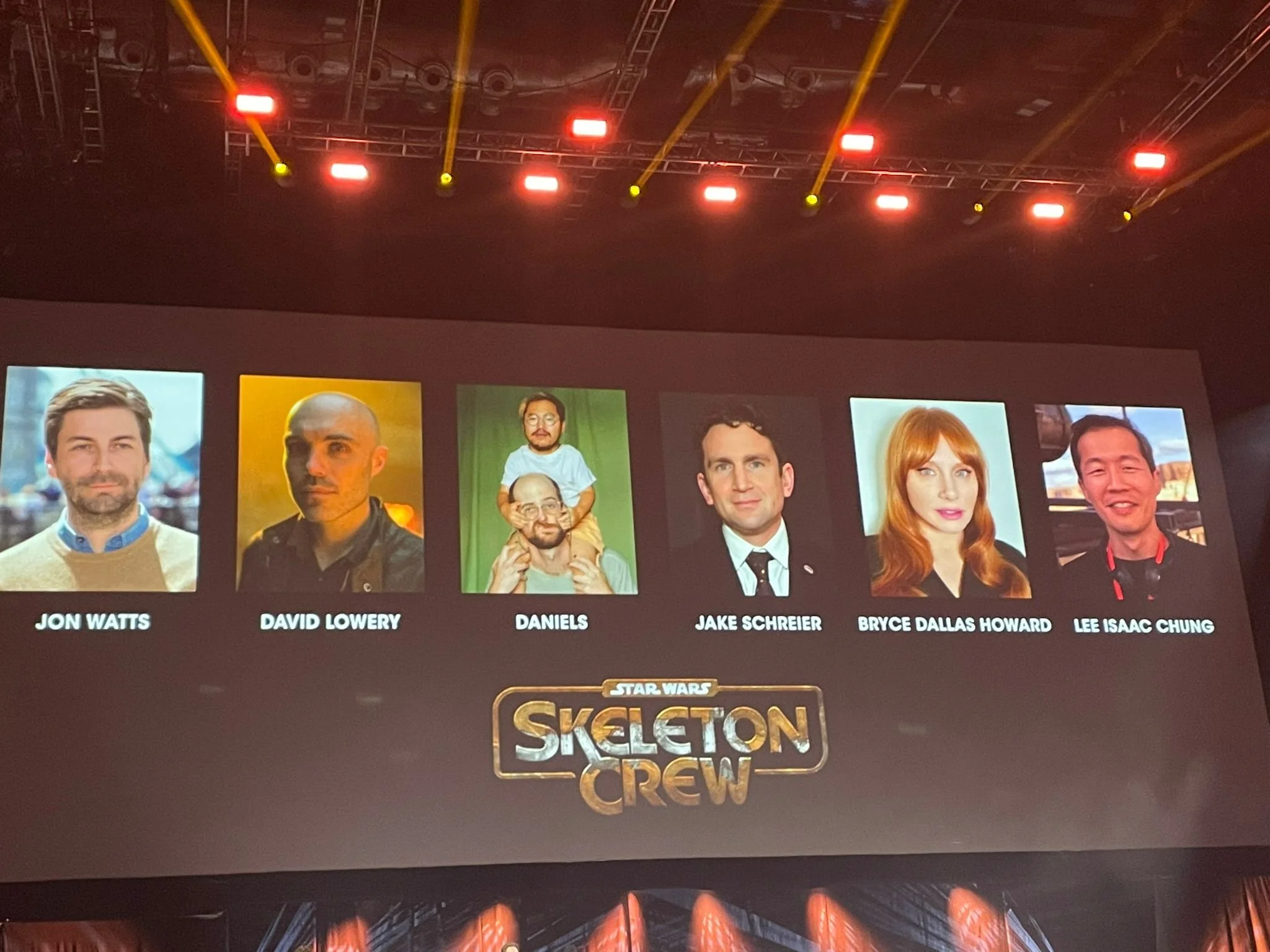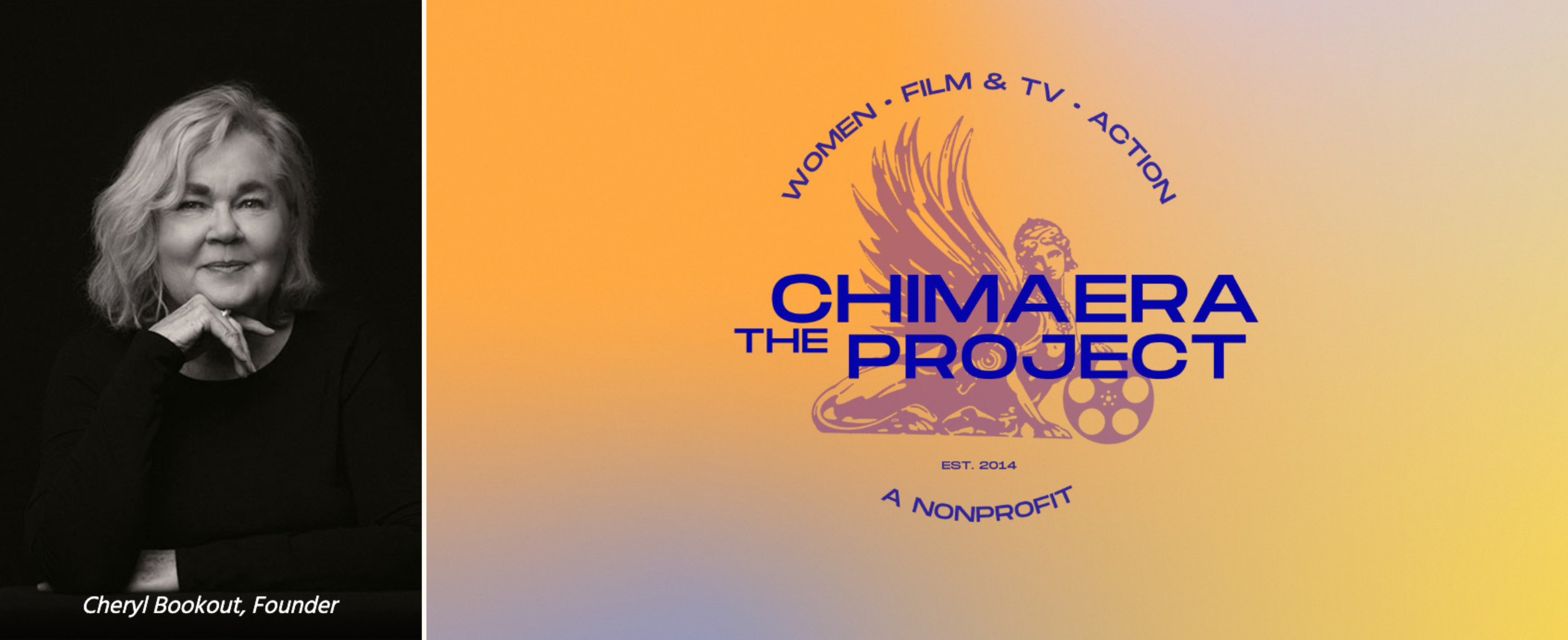THE MUSE #127
In this edition: The upcoming Star Wars series Skeleton Crew announces its star-studded line-up of directors. Plus: Producers Saralyn Armer & Cheryl Bookout demystify the film grant process and discuss how to put your best foot forward when applying for them.
Skeleton Crew Directors Announced
Lucasfilm recently announced its top-tier slate of directors who will helm episodes of the upcoming Disney+ series, Skeleton Crew — including our very own Bryce Dallas Howard!
A synopsis for the series says, “Skeleton Crew follows the journey of four kids who make a mysterious discovery on their seemingly safe home planet, then get lost in a strange and dangerous galaxy. Finding their way home—and meeting unlikely allies and enemies—will be a greater adventure than they ever imagined.”
Also among the directors are Jon Watts, David Lowery, the Daniels (Daniel Kwan and Daniel Scheinert), Jake Schreier, and Lee Isaac Chung. Read more about the series here.
The Mystery of Film Grants: How to Put Your Best Foot Forward
by Saralyn Armer
Welcome to Production Muse, a column for getting creative about the business of entertainment.
Confession: I’ve never written an application for a grant before.
I’ve produced projects that have received grants, but personally, I have never applied for one… and I think I’ve missed out on an experience — not to mention possible opportunities.
I think my decision to not apply stemmed from a lack of confidence since I wasn’t all that familiar with the “grant world,” but now I want to help other filmmakers feel more confident and knowledgeable about applying.
First up: What are film grants?
According to Studio Binder, “Film grants are usually unrestricted funds, services, or equipment that can be used for the development, production, or distribution of a project. They do not have to be repaid. Often the awarding entity will want status updates or recognition in the film's credits. Film grants give independent filmmakers the most freedom” (“The Ultimate Film Grants List for Every Filmmaker”).
Since I’ve never applied for a film grant before, I thought it’d be another missed opportunity if I didn't find out what you need to submit and, more importantly, how to do it right.
Enter Cheryl Bookout, a director, producer, artist and co-founder in the Chimaera Project, a non-profit with a mission to support female, female-identifying, and Two Spirit directors with mentorship and finishing fund opportunities. Cheryl has applied for and received over 200 grants in her career working with nonprofit art organizations and has read hundreds of applications for The Chimaera Project’s TO.GET.HER Finishing Fund Program.
I spoke with Cheryl to get an insider’s perspective on how to succeed in the film grant world and avoid “the grant search rabbit hole.” Listen to our full conversation and read highlights from our chat below.
Cheryl Bookout’s Top Tips for Grant Applications
“There are more grant opportunities for finishing funds in narrative films than there are for research and development [or] production. But documentary films have more opportunities for production funds through government funded grants (city, county, state and federal). Don’t be afraid to apply for those! There are exceptions such as the Roy W. Dean Film Grants Fund; they fund the production of most genres with budgets of $500,000 or less.”
Make sure you are clear about how you will use grant funds. Grant work does not end when you receive the grant award. There are grant reports, sometimes interim and final, but always report on how the funds were used and if you achieved your goals and objectives in the making of your film as you stated in the original grant proposal.
Give yourself plenty of time. There is no better way to sabotage yourself than to start writing the grant on top of the deadline. Read the grant guidelines carefully and start to assemble any required attachments.
Read the questions in the narrative sections carefully. Be direct and succinct. Creating a draft to work in will help save you time as grant applications have word or character counts in the narrative sections, and this is much easier to wrangle in a draft document. Plus, you can reuse most of what you are drafting for other applications.
Make sure you have a budget that makes sense. Most grant applications have a budget template they ask you to download to use for their submission. Do this early, not the night before the deadline.
Be organized. This will save you time in the long-run and the next grant you apply for will be easier to assemble all the information and attachments you need.
Do not apply for a grant unless it is truly a good fit for your project. Don’t morph your project to fit the grant guidelines. It never works. “When The Chimaera Project reviews finishing fund applications, we look at what stage of production the film is in, the diversity of the crew list, the clarity of the film’s story, the budget top sheet, and then the director’s statement, biography and filmography. A pitch deck is a good extra to include.”
I hope Cheryl’s advice can help you put your best foot forward to win some funding for your project! Need to know more about film grants and what you’ll need to prep to submit? Check out “Where to Find Film Grants” from the Film Fund.
About Cheryl Bookout: Cheryl is currently on the festival circuit now with her award-winning documentary film Inside the Beauty Bubble. She produced the award-winning short film GLORIA’S CALL (2018) directed by Cheri Gaulke and the short sci-fi film PURE (2019) directed by America Young. She is currently producing a feature-length documentary ACTING LIKE WOMEN directed by Cheri Gaulke, and a short narrative film JUST A FRIEND directed by Courtney Deelen. Her nonprofit work includes sitting on the Board of Directors for FurstWurld, Joshua Tree Retreat Center and Mil-Tree Veterans Project. She is the past President of the Southern California Women’s Caucus for Art and has been a guest on numerous filmmaking/art panels throughout the U.S. As an individual artist, Bookout is included in the California Women Artist Project archived at the University of Southern California and Special Collections and University Archives, Rutgers University Libraries, a project organized by Gloria Orenstein, Professor of Women in Literature and Art at USC.
About The Chimaera Project: The Chimaera Project recognizes the collective voice as a catalyst for SOCIAL CHANGE. Our overarching goal is to inspire confidence in hiring more women and nonbinary creatives. Statistics prove that current hiring practices in the arts have a tangible creative and economic impact on families and our communities. We are dedicated to empowering women and non-binary filmmakers to fearlessly create, inspire and lead. Our goal is to create change by demonstrating an inclusive model [and] our vision is to support women filmmakers to see their project to fruition. We believe that by supporting creative visionaries who are telling the stories that will grow our hearts, open minds and ask questions, together we can lead a movement for positive change in the world.
Newsworthy & Opinions
“A writers’ strike might grind Hollywood to a halt.” Vanity Fair breaks down why film and TV scribes are preparing to stop work—and how a potential strike could change everything.
In Donald Glover and Janine Nabers’ Swarm, a highly-detailed dedication to all-things Beyoncé and her “Bey Hive” fanbase is key to the show’s menacingly satirical look at obsessive fandom turned murderous. Here’s how Swarm production designer Sara K White created Beyoncé-level merchandise and concerts at a budget price.
Newsletter run by Nia Farrell, Director of Development and Production at Nine Muses Entertainment


